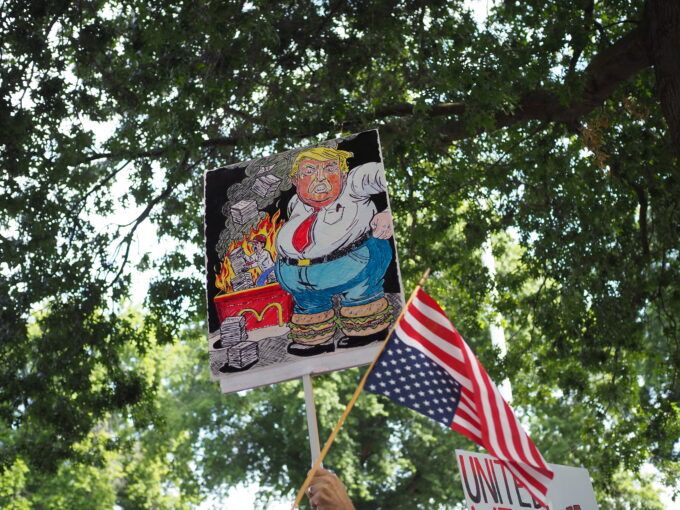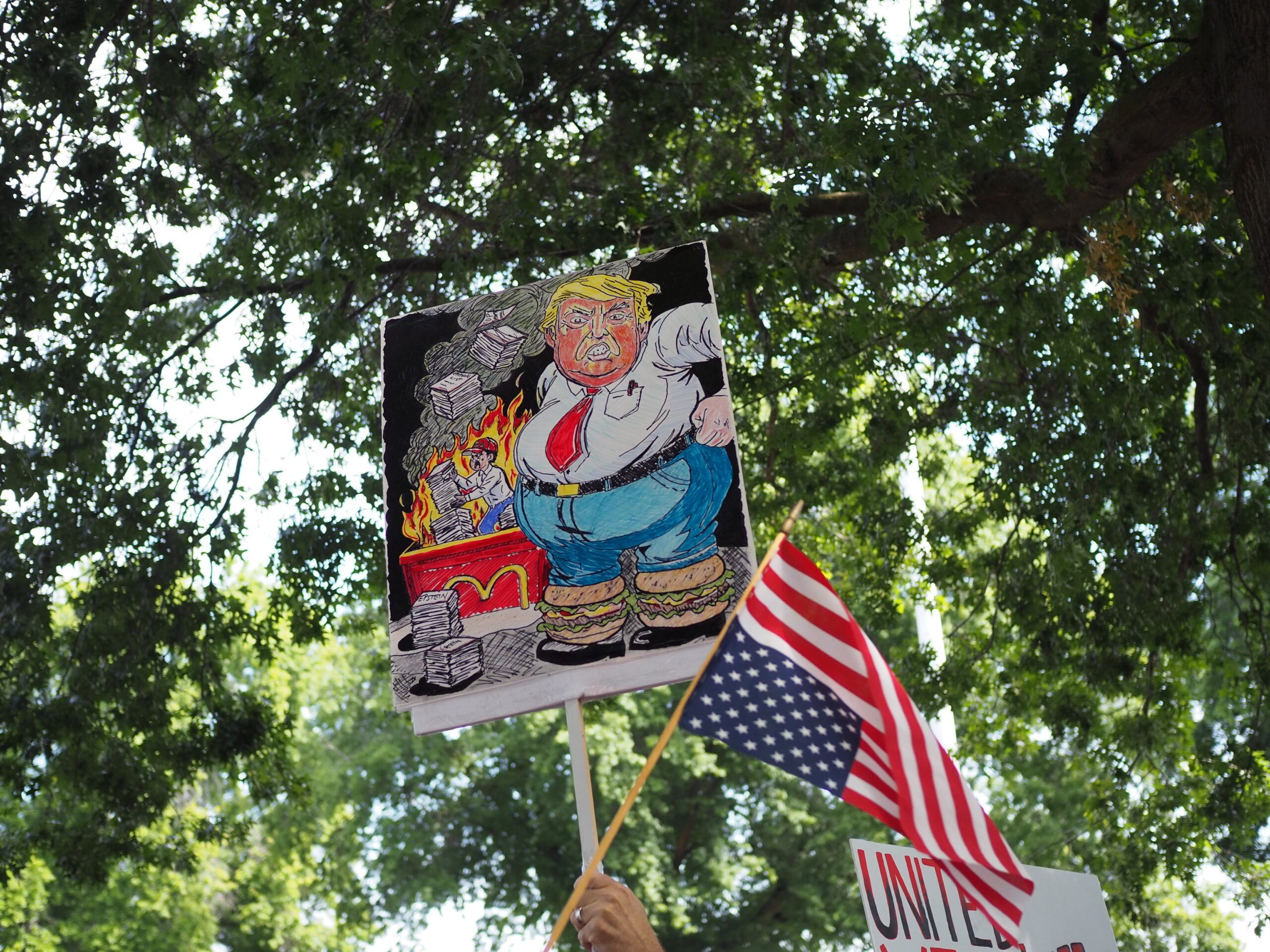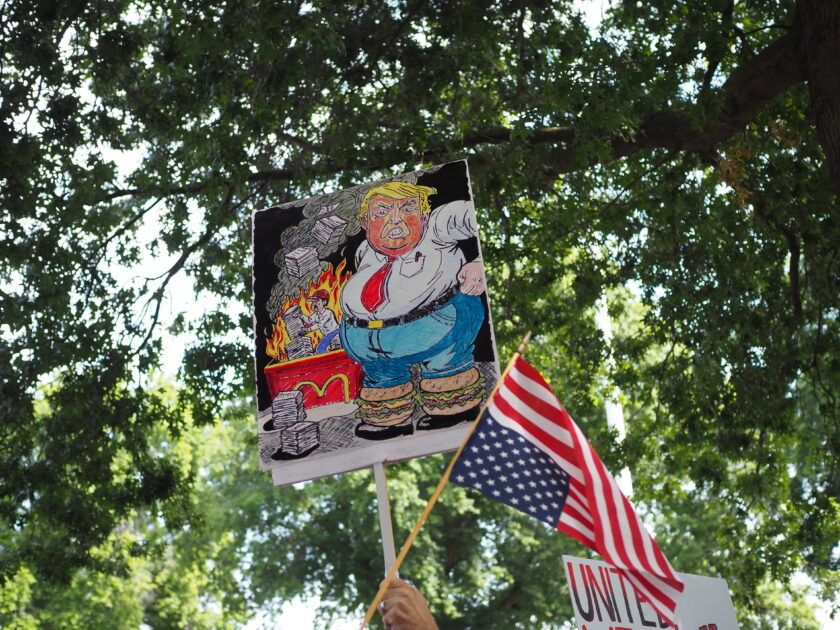Photograph by Nathaniel St. Clair
Irony of diplomatic rhetoric being exercised extensively is that it leaves nothing at stake. After all, what relevance does rhetoric really have whether it is indulged in diplomatically or at any level? Interestingly, President Donald Trump may be viewed as a master at this strategy. In fact, there is greater merit in viewing his comments as plainly rhetoric. Think of his having recently described his relationship with Indian Prime Minister Narendra Modi as “friendly.” Trump described Modi as a “dear friend” in a post. Modi responded by writing on X, “India and the US are close friends and natural partners.” And then within hours, Trump urged European Union to impose 100% tariffs on China and India as a part of his moves against Russia’s war with Ukraine. Speculations about “trade talks” between the two countries are also in the air. The only thing that is clear is that Trump is an expert at indulging in diplomatic rhetoric as and when it suits him. What difference does it make to him and it should not also make to others who choose to give some/substantial importance as rhetoric is after all rhetoric. Here, Modi is certainly no match for him. The Indian leader is definitely an expert in making “promises” on the domestic front, particularly during his electoral campaigns, but diplomatically appears to take even diplomatic rhetoric too seriously even when they carry little weight for the speaker.
Think of it from this angle, when Trump described his relations with Modi as friendly, what was at stake for the former? Nothing. His “comments,” rather “rhetoric” are already fairly well known for their limited credibility as well as temporal validity. But when Modi’s response, even though suggesting diplomatic caution, was followed by Trump’s stand about imposing 100% tariff against India, it probably only spelt diplomatic shock for those having taken US President’s comment “seriously” regarding friendly ties with Indian leader. Despite Modi having exercised diplomatic caution, that is by not referring to “friendly” relations between him and Trump but referring to that between the two countries, it is clear that US President’s “diplomatic rhetoric” was taken seriously.Trump enjoys the glory and command of heading a superpower. So whatever he says, writes on X, even states officially cannot but be given importance. He has nothing at stake as his diplomatic rhetoric have nothing at stake. But even his diplomatic rhetoric places the other powers and leaders in a fix, at most times leaving them with no option but to respond seriously. Modi was apparently faced with this dilemma when Trump commented on his being a “dear friend.”Hype raised about Alaska-summit and what seemed close and cordial ties between Trump and his Russian counterpart Vladimir Putin cannot be missed. The diplomatic tension this spelled for United States’ European allies bears greater significance. They rushed to Washington, soon after the summit, to meet Trump. Now, given that Russia is displaying no sign of stepping back from its engagement in Ukraine-war, one is compelled to deliberate on whether Alaska-summit signaled any major diplomatic gain or not? Or would it be relevant to just brush it aside as another indulgence of Trump in diplomatic rhetoric and that too at a grand scale, diplomatically? Yes, Trump is certainly exercising a tough stand at India through tariff by blaming it for “fueling” Russia’s strikes against Ukraine by buying Russian oil. But this also loses merit as Trump is not targeting other countries with tariff-war though they also are trading-partners of Russia.Trump’s reaction to Israel’s strike against Doha, Qatar (September 7) to apparently target Hamas leaders probably displays nothing more than just diplomatic rhetoric. He expressed that he was feeling “very unhappy,” “bad” and so forth about the strike. Trump also emphasized the need of the release of Israeli hostages. On its part, Israel stated that US was informed about the strike. The issue is not whether US was informed or not. Trump’s reaction bears greater significance in context of this piece. Seriously, it seems another sign of his indulgence in diplomatic rhetoric, that of his feeling “bad” and “unhappy.” It is possible, the strike was deliberately indulged in to shift people’s attention from Gaza-genocide. But for how long? The scale at which Israeli Prime Minister Benjamin Netanyahu is moving ahead targeting Palestinians is inviting criticism from practically all but Israel’s strong ally- United States. Now, the Doha-strike has certainly raised questions about United States’ role in the region. Is it also confined to Trump’s diplomatic rhetoric?The irony of Trump’s diplomatic rhetoric cannot be delinked from his having “committed” himself to end wars and assure “ceasefires” not too long ago. Excessive indulgence in diplomatic rhetoric over a period of time can amount to the same losing its diplomatic relevance. Not surprisingly, now, prior to judging diplomatic significance of Trump’s comments, speculations are floated about his taking a U-turn soon. After all, their relevance may be nothing more than diplomatic rhetoric!
The post The Irony of Diplomatic Rhetoric! appeared first on CounterPunch.org.
From CounterPunch.org via this RSS feed






